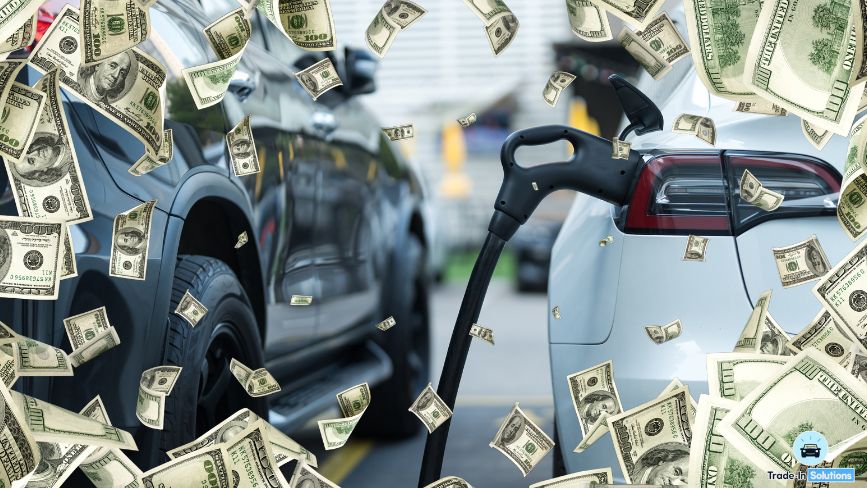Friends and clients of Trade In Solutions, if you own or lease an EV car, you could receive a tax credit or rebate of up to $7,500 through the California Clean Vehicle Rebate Program.
Exciting Changes in 2024: Instant EV’s Cars Tax Credits
Starting in 2024, new regulations empower buyers to claim the EV tax credit right at the moment of sale, eliminating the need to wait until tax season.
Inflation Reduction Act Boosts Savings for Owners or renters of EV cars
Benefit from the Inflation Reduction Act, offering a tax credit of up to $7,500 for new EV purchases and a $4,000 credit for used EVs.
Key Highlights of California’s Clean Vehicle Rebate Program
- Maximize Savings: Get a rebate of up to $7,500 when you purchase or lease a new plug-in hybrid electric vehicle (PHEV), battery electric vehicle (BEV), or fuel cell electric vehicle (FCEV).
- Instant Incentives: The Clean Vehicle Rebate Program (CVRP) operates on a first-come, first-served basis, emphasizing the need to act promptly to secure your rebate.
- Promoting Sustainability: Contribute to a greener future by putting the cleanest vehicles on California roads through CVRP.
- Cost Reduction Initiative: CVRP strives to make cutting-edge technologies more accessible by providing consumer rebates, effectively lowering the initial costs of eligible vehicle purchases or leases.
- Exclusive Benefits for California Residents: Residents meeting income requirements can enjoy these rebates, supporting the state’s commitment to cleaner transportation.
- Environmentally Conscious Choices: Participate in CVRP to embrace eco-friendly choices that benefit both your finances and the planet.
- Time is of the Essence: Act now to maximize your savings or secure a tax rebate in 2024. Don’t miss out”meet the requirements and enjoy the financial incentives of the Clean Vehicle Rebate Program.
Why Obtaining a $7,500 EV Tax Credit may not be easy for some?
Unfortunately for those interested in the tax credit, attaining it may be challenging soon. This is due to the Inflation Reduction Act, which President Joe Biden signed into law in 2022. The act requires certain manufacturing requirements to be phased in, which is designed to enhance domestic EV supply chains. While this will be beneficial in the long run, it may cause some EVs to become ineligible for a full or partial tax credit in the short term. Carmakers are working to comply with the rules, and they only apply to new EVs, not used models or leases.

